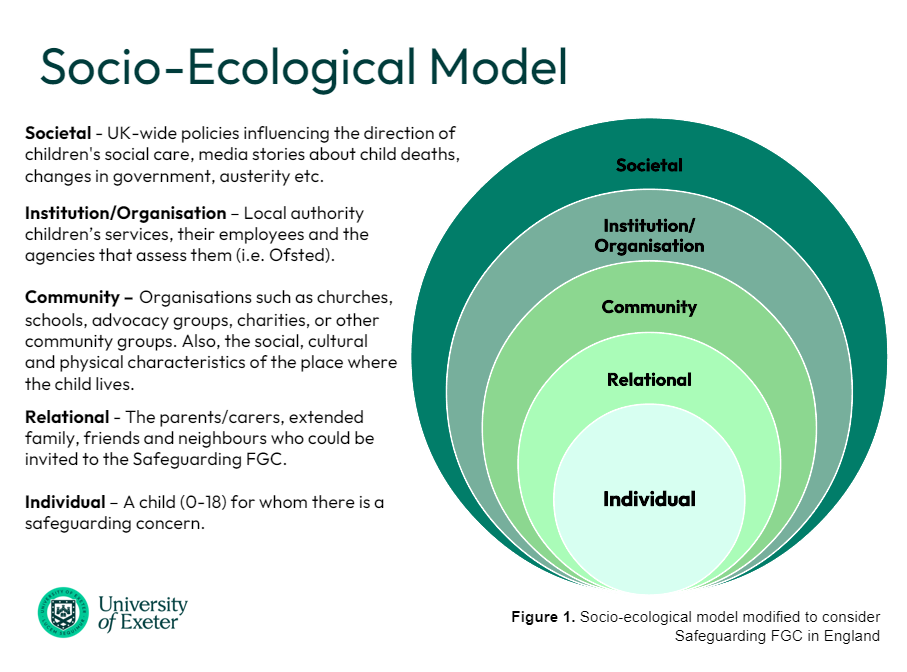Posted by fgcstudy
7 November 2023
In June 2023, the University of Plymouth hosted its first ‘Social Work and the Sea’ symposium. Over the two-day event, academics, practitioners, and policymakers came together to consider the socio-cultural and historical significance of social work research, practice, and education in coastal communities.
Symposium highlights
The Safeguarding FGC Study
A Safeguarding FGC researcher presented a paper at the symposium entitled ‘Considering the influence of space and place in Safeguarding FGC: Reflections from a research-in-residence in a coastal community’ based on preliminary findings from the Safeguarding FGC study. Drawing on reflexive notes written while working as a research-in-residence in a coastal children’s services office, she presented some of the ways space and place influence how Safeguarding Family Group Conferences may, or may not, fit into child protection settings for families and practitioners. Using the socio-ecological model to frame the discussion (see Figure 1), she highlighted the potential challenges and opportunities present in coastal local authorities compared to their urban, inland counterparts. The presentation was an opportunity to test emerging ideas with a supportive and highly qualified audience of social care researchers and practitioners. The presentation was well received, and practitioners and researchers expressed interest in hearing more about the way in which space and place, conceptualised at different scales, influence the implementation and piloting of Safeguarding FGC in different local authority contexts.

Outcomes The symposium achieved its aim of fostering collaboration and inspiring new research directions. As a result of attending, the Safeguarding FGC team decided to write a paper on the influence of space and place on Safeguarding Family Group Conferences. In addition, the in-person event afforded ample opportunities for networking and raised awareness about the fascinating array of social work research in coastal communities being carried out in the UK and beyond.